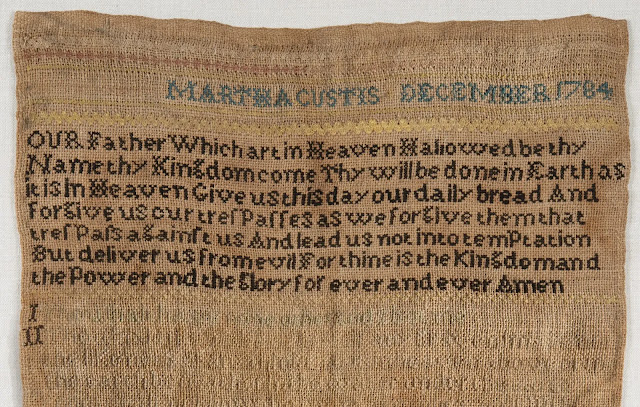Patriotic Ladies: 'Women's Tea Parties'
"On October 25, 1774, women in Edenton resolved to stop buying English tea and cloth to protest taxation without representation. The event became known as the Edenton Tea Party."
"By the early 1770s, tensions had been building for a decade between the North American colonists and British officials. Debate swirled around taxes, representation, and rights. Parliament affirmed their right to tax all citizens of the empire, while Americans insisted that only their locally elected representatives (colonial legislatures) could do so.
"In 1773 the British government enacted the Tea Act, aimed at both assisting the struggling East India Tea Company, and undercutting smuggling on the part of the Americans. Tea was a drink for the upper and middling classes in the American colonies, most colonials never tasted it. Yet tea became symbolic in the growing debate that was dividing England and the colonies.
"In each colony, leading men organized to protest what they saw as unfair taxes and unequal treatment. Their argument stemmed from the fact that they were not being treated as British subjects, independence was not yet on the minds of most. The majority of Americans hoped for reconciliation with the mother country and hoped to find a solution to the problems they faced. The Boston Tea Party of December 16, 1773 crossed the line into new forms of protest: with mob violence and destruction of property. It was a result of pent-up anger and frustration. The Tea Party, in which protestors dumped 342 chests of tea into Boston Harbor, resulted in damages worth over one million dollars in modern currency. There were other tea party protests in other colonies, all smaller and less known today.
"Sometime between March 25 and April 5, 1774 a group of women in Wilmington, North Carolina staged their own protest against the tea tax. They gathered in the port town and publicly burned tea. Unfortunately we do not know where, how much tea, whose it was, who organized it, or public reactions.
"In fact there is only one account of this event, written by English-sympathizer Janet Shaw. She recorded, 'The Ladies have burnt tea in a solemn procession, but they delayed however till the sacrifice was not very considerable, as I do not think any one offered above a quarter of a pound.' This one sentence by an unsympathetic observer is our only source for this event."
The website Women & The American Story tells us:
And they recorded the document's text:
"As we cannot be indifferent on any occasion that appears nearly to affect the peace and happiness of our country, and as it has been thought necessary, for the public good, to enter into several particular resolves by a meeting of Members deputed from the whole Province it is a duty which we owe, not only to our near and dear connections who have concurred in them, but to ourselves who are essentially interested in their welfare, to do everything as far as lies in our power to testify our sincere adherence to the same; and we do therefore accordingly subscribe this paper, as a witness of our fixed intention and solemn determination to do so."
“Edenton, North Carolina, October 25, 1774,” Postscript. The Virginia Gazette (Williamsburg, VA: November 3, 1774). Courtesy of Colonial Williamsburg.
(Source: Edenton Tea Party - Women & the American Story (nyhistory.org)
(Source: Edenton Tea Party - Women & the American Story (nyhistory.org)
Mrs. Penelope Barker - President of the Edenton Tea Party of 1774
(Source: Edenton Tea Party | NCpedia)
Admission Ticket, Woman's Tea Party, 1873. Courtesy of the Boston Athenaeum.
"The women of New England who believe that 'TAXATION WITHOUT REPRESENTATION IS TYRANNY,' and that our forefathers were justified in resisting despotic power by throwing the tea into Boston Harbor, hereby invite the men and women of New England to unite with them in celebrating the One Hundredth Anniversary of that event, in Faneuil Hall, on MONDAY AFTERNOON AND EVENING, DEC. 15, from 4 to 9 P.M.[1]
"The women of New England who believe that 'TAXATION WITHOUT REPRESENTATION IS TYRANNY,' and that our forefathers were justified in resisting despotic power by throwing the tea into Boston Harbor, hereby invite the men and women of New England to unite with them in celebrating the One Hundredth Anniversary of that event, in Faneuil Hall, on MONDAY AFTERNOON AND EVENING, DEC. 15, from 4 to 9 P.M.[1]
May the good Lord bless the memory of the these Patriotic ladies! We might never know just how much tea was destroyed or exactly who was involved, but we do know our American freedom was important to these women and they did what they could to help secure it. Amen. - Mercy Adams








Comments
Post a Comment
Welcome! Please feel free to comment, but anti-Christian comments or profanity will not be tolerated. Thank you, ed.